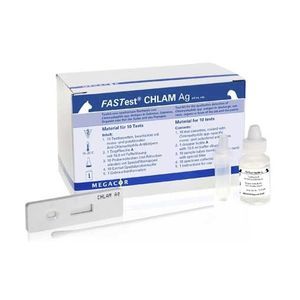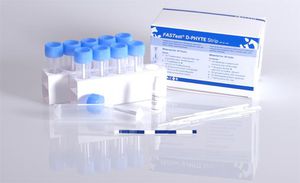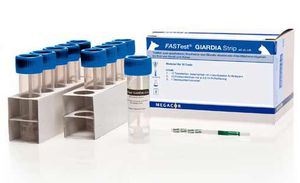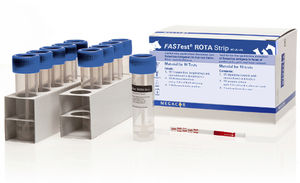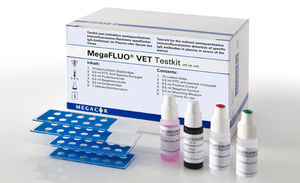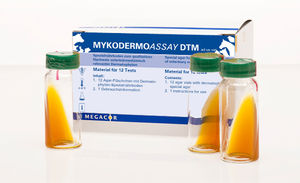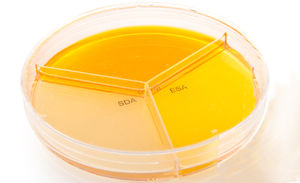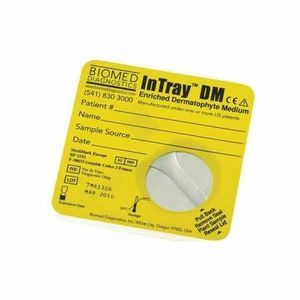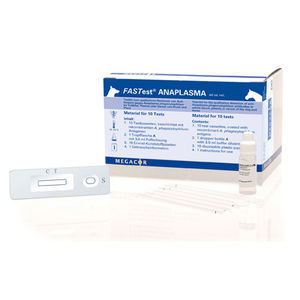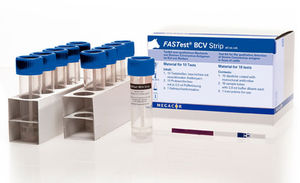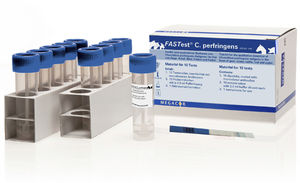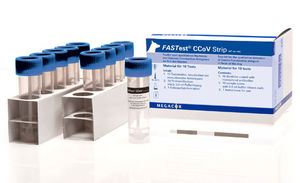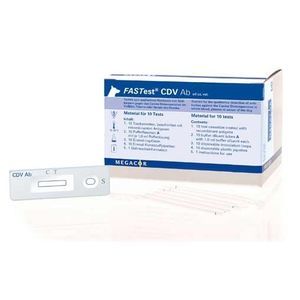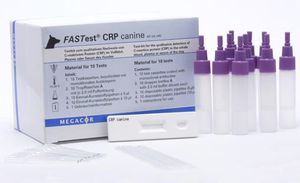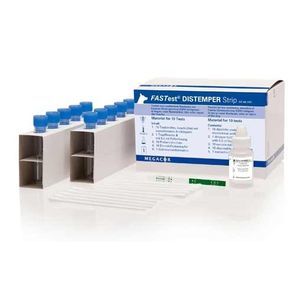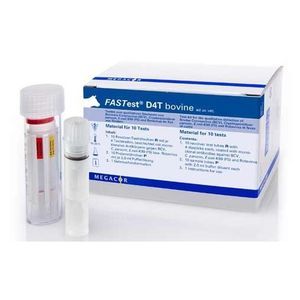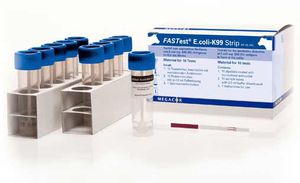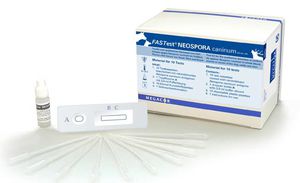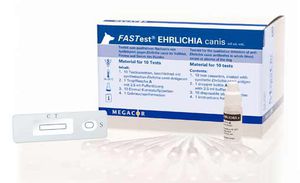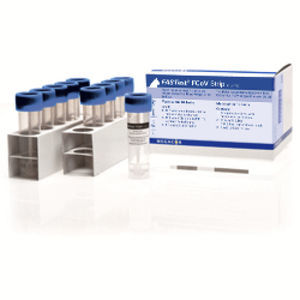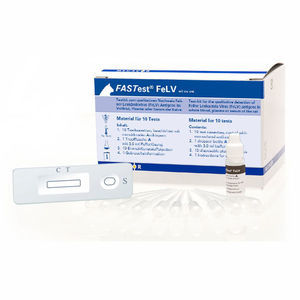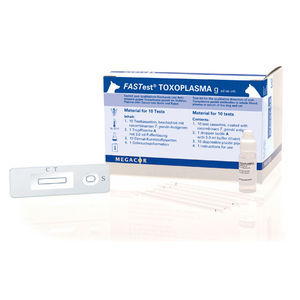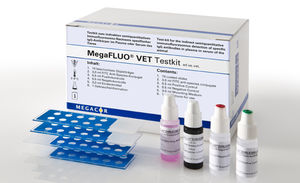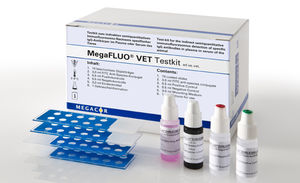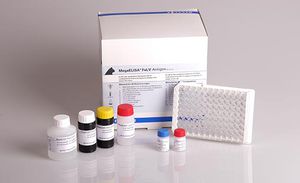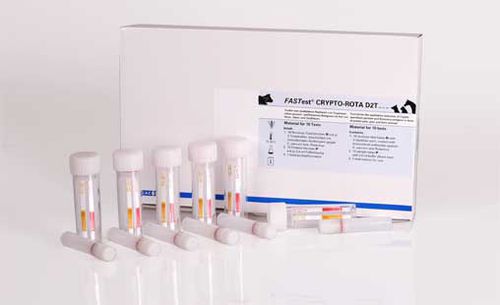
- Laboratory
- Laboratory medicine
- Rapid diarrhea test
- MEGACOR Diagnostik
Rapid diarrhea test FASTest® CRYPTO-ROTA D2Tveterinaryfor antigenslead
Add to favorites
Compare this product
Characteristics
- Applications
- for diarrhea
- Application field
- veterinary
- Tested parameter
- for antigens, lead
- Micro-organism
- rotavirus, Cryptosporidium
- Sample type
- clinical, feces
- Analysis mode
- immunochromatographic
- Result display time
10 min
- Specificity
95.5 %, 100 %
- Sensitivity
94.1 %, 96 %
Description
FASTest® CRYPTO-ROTA D2T is a rapid immunochromatographic test for the qualitative detection of Cryptosporidium parvum and Rotavirus antigens in feces of pocket pets, pets and farm animals.
Diarrhoea can lead to severe courses of disease up to death for all species. Among the diverse diarrhoea pathogens in pocket pets, pets and farm animals, especially Cryptosporidium parvum (C. parvum) and Rotavirus (RV) are a great challenge for the veterinarian due to their common appearance and their zoonotic potential.
Especially in cattle population, Rotavirus is widely spread (seroprevalence up to 100%). Recent studies in Germany with small animals have shown prevalences in dogs and cats of 7% and 8%, respectively.
Cryptosporidia form two types of infectious oocysts: 20% are thin-walled and stay in the host, where they cause reinfection through autoinfection. The remaining 80% are thick-walled and are excreted intermittently, i.e. not with every defecation, as dormancy stages. These are very resistant and can remain infectious for months. They can infect other animals as well as humans via drinking water. Clinical symptoms can vary depending on age and immune status of the animal. Neonates and young animals are predominantly affected.
Caused by the high infectiveness, often a population problem arises. Double infections are not uncommon. Special attention should be paid in the fact that Cryptosporidia as well as Rotavirus play important roles independent of the diarrhoea problem (asymptomatic shedders).
Catalogs
No catalogs are available for this product.
See all of MEGACOR Diagnostik‘s catalogsRelated Searches
- Assay kit
- Blood assay kit
- Molecular biology reagent kit
- Serum assay kit
- Immunoassay assay kit
- Plasma assay kit
- Infectious disease detection kit
- Blood rapid diagnostic test
- Diagnostic reagent kit
- Laboratory reagent kit
- Rapid lateral flow test
- Immunoassay rapid diagnostic test
- Rapid virus test
- Serum rapid diagnostic test
- Plasma rapid diagnostic test
- Histology reagent kit
- Reagent medium reagent kit
- Infectious disease rapid diagnostic test
- Immunology reagent
- Whole blood rapid diagnostic test
*Prices are pre-tax. They exclude delivery charges and customs duties and do not include additional charges for installation or activation options. Prices are indicative only and may vary by country, with changes to the cost of raw materials and exchange rates.



